Dan Lilker has been involved with heavy metal for many years. Whether you spotted him in his first “real” band nuclear assault, or followed his career from NYC speed metal band Anthrax to his work in Brutal Truth, you probably recognize something he’s touched in the past decade and a half. We caught up with Dan after spotting him goofing off on the internet, and he was kind enough to answer some quick and obscure questions.
Some people would accuse you of trend-jumping in that you’ve covered the spectrum of genres from speed metal to grindcore to black metal and now to whatever the ravenous is.
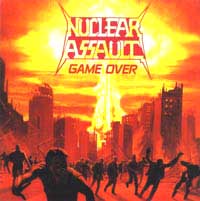 Let’s do a quick overview of my history in metal. Formed Anthrax, got tossed ‘cos Neil Turbin was a prick. Formed N.A. (’84). Played faster, more hardcore-tinged thrash than Anthrax. So far, no trend-jumping, lol. Was invited to do S.O.D., accepted.
Let’s do a quick overview of my history in metal. Formed Anthrax, got tossed ‘cos Neil Turbin was a prick. Formed N.A. (’84). Played faster, more hardcore-tinged thrash than Anthrax. So far, no trend-jumping, lol. Was invited to do S.O.D., accepted.
Side note: All this time I still treasured my Hellhammer and Fate collection!
OK, after 8 years of N.A., I grew tired of thrash and wanted to play much more extreme shit, hence B.T. Was that trend jumping, or merely doing what I really wanted to do, rather than stagnating and not enjoying myself? Hmmmm…
In ’96 I also joined Hemlock, ‘cos I enjoyed a lot of 90’s b.m. and I still held the old bands close to my heart. Perhaps some cynically-minded people might see that as bandwagon-jumping, but I was just enjoying myself…
Almost done! B.T. broke up for personal reasons in ’98, not ‘cos I was tired of not playing “popular” music, hehe.
In early 2000 I received a call inviting me to jam with Chris fuckin’ Reifert, whaddaya THINK I’m gonna say to that???
Are you saying people talk a lot of shit about metal musicians in public? Thanks for the history of your involvement with metal.
Consider this: When I talk shit and get aggressive, well, everyone knows who I am , right, and they could find me at a Metalfest and get in my face, but I have no idea what all those other people look like…
Nuclear Assault… let’s talk more about this, if possible. What were your influences then? Who wrote most of the material? Why the switch to longer song formats almost exclusively (excepting great stuff like F# wake up) after the first two eps?
We were into a lot of HC and thrash metal, I guess, Celtic Frost, Adrenalin O.D., etc.John and I were the main songwriters. Longer songs? Well, the first release we ever put out, Braindeath, had a 9-minute title track! I guess we “matured”, I don’t know…
 And for kicks: who came up with Mr Softee theme? I’ve driven away neighbors with that one. ICE CREAM!
And for kicks: who came up with Mr Softee theme? I’ve driven away neighbors with that one. ICE CREAM!
Ha! John always played that dumb riff at rehearsal, and it blossomed from there!
SOD came after the DRI/MDC expansion perhaps, but seemed like an extension of what Anthrax and Agnostic Front were doing rolled into one.
Well, you’ll notice that I never said we created crossover, I just said we made it trendy, lol! But it’s true. Metal kids started getting more into HC after “Speak…” came out, no doubt about it.
I thought Brutal Truth was one of the hopeful lights for the grindcore genre since the rest of it just seemed to slide into fucking turd… I don’t blame you for jumping out of the grindcore style when you did whether people call it trend hopping or not.
Well, it’s the semantics of trend jumping that bothers me, as it would seem to connote someone making a conscious and deliberate effort to play whatever’s popular at the time, regardless of whether that person really likes the genre in question. And that has NEVER EVER been the case with me, but I can’t help it if people come to their own conclusions. I just do what I wanna do, play what I wanna play, and that’s it, end of story.
Interesting. Black Metal seems like hardcore an ideologically-based genre (of some sort) so people take its boundaries more seriously. So far we’re at four genres in which you’ve participated, and I can see why others might see that as bandwagon jumping, but my opinion is neutral as of now. Who started hemlock and what 90s BM do you enjoy? Or rather, since you put that in the past tense, what 90s BM did you enjoy?
I have always noticed that HC and b.m. have the same type of narrow-minded, snobby, (un)holier than thou attitude. And it always seems that the people who have got into it the most recently talk the most shit, lol! Hemlock was started by Lino (D777). I still enjoy 90’s b.m. like Nazxul, Darkthrone, Immortal, blah,blah,blah.
Although it always sucks when a useful band breaks up, sometimes it’s unavoidable. Besides, Brutal Truth was one of the top acts on relapse, right?
Yeah, we were definitely a big priority for Relapse and they were crushed when we split up, but there was no other way, so, oh well!
Pretty cool that for a dude over 30 you’re able to keep up the lifestyle. Speaking of which, mind a few more questions? Bongs or pipes? Hashish or vegetable matter? Constant or intensity ingestion? Most profound statement of relevance of THC to your lifestyle and ideas?
Pipes. I’m too lazy to keep re-loading! Just stuff that fucker and smoke! I enjoy hash and herb equally, but hash is a nice treat since it’s rarer here. In March, me and my wife are going to London and AMSTERDAM for our first anniversary, so……….yeah.
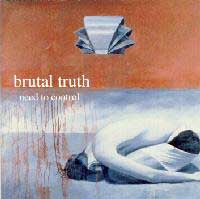 Grindcore is by nature an ideological genre, but once you’re in the general area of protest music style lyrics, most of which are what we could call “leftist” or “anarchist,” you’re part of the club. It seems to me that to many musicians, lyrics are mostly irrelevant. How does this fit into your worldview?
Grindcore is by nature an ideological genre, but once you’re in the general area of protest music style lyrics, most of which are what we could call “leftist” or “anarchist,” you’re part of the club. It seems to me that to many musicians, lyrics are mostly irrelevant. How does this fit into your worldview?
Well, Brutal Truth had socially conscious lyrics, but it would certainly be a stretch to say we were anarchists or anything. Our lyrics were not really outright political as opposed to your DRI’s and COC’s. Once Kevin took over singing in ’91 all the lyrics got really interpretive and indirect anyway. As for me, I am a bassist and musician first; lyrics will always be secondary to music to me. That doesn’t mean I would play songs like “Kill The Niggers” or “Vegan For Life”, hehe. My worldview? I’m basically a laid-back, tolerant person, and I don’t really attempt to inject these views into the music I play.
When you were making music with Brutal Truth, there is a shift in style on Need to Control that marks a departure toward depth in harmony and texture in music that on the first album was direct, straight ahead blasting chaotic grind. What inspired this shift? If you could do it again, would you still?
Drugs. Or, specifically, marijuana. Well, that’s generalizing. Our first drummer, Scott, who didn’t get high, left the band ‘cos he was sick of playing drums and touring, he really just wanted to sprawl on the couch with remote in hand. So, we got Rich, a big pothead, like us, and it made the music a lot more in-depth. It also had to do with the fact that a lot of the songs from the first one were written solely by me, where as NTC was more of a group effort.
Need to Control is one of my favorite grindcore albums. Was it intended as a whole, or was it collected songs? Where and when was most of it written, and how much embellishment occurred in the studio?
With hindsight I dislike the production, but the songs are good. I wouldn’t say it was written as a whole, although we wrote them all in a house by the lake in New Hampshire in the dead of winter, which (to me) gives all the songs a unifying theme. The noise songs were tracked there on my old analog Tascam 8-track cassette board (RIP). I wasn’t there for the mix, Earache wouldn’t pay for all 4 band members to chill in Liverpool where itwas mixed, so I couldn’t tell you much about any embellishment, but let’s say it didn’t sound incredibly different than the raw tracks.
Did Nuclear Assault ever get in any flack from censoring or album stickering problems in the 1980s and 1990s?
Nah. I don’t think we attained the level of popularity where those assholes noticed us.
Are there any current bands to which you listen?
Terror Of The Trees.
What are your responses to the following: Burzum, Beherit, Sarcofago, Krieg, Kult ov Azazel, Averse Sefira, Slayer, Repulsion, Napalm Death, Carcass, Graveland, Antaeus, Demoncy?
Burzum: Great music from an idiot. Beherit: All Beherit is cool by me, from that pile of crap (Oath) to the electronica shit. Sarcofago: Beautiful raw primitive. Krieg: My homeboy Imperial. Krieg is good shit and this guy always supported Hemlock. Kult ov Azazel: I haven’t heard them, but Black Witchery says they’re good. Averse Sefira: Haven’t heard them either. Saw one of them fighting with D77 from Hemlock on the FMP board, much to my amusement. Slayer: They ain’t what they used to be, but still great live. Repulsion: Ah yes, classic and revolutionary death-grind. Napalm Death: Love all the old shit. Carcass: Ditto. Graveland: I certainly don’t agree with Darken’s views… and their drummer is so crap that their music isn’t very good either. Antaeus: Never heard ’em, but I’ve heard good things. Demoncy: Played with ’em in NYC. Cool guys, good band.
You’re married. Is your lady a metal woman?
Oh yeah! We met at the 2000 March Metal Meltdown, as a matter of fact. You should see our apartment!
What do you like most about living in New York?
Convenience.
What do you dislike most about living in the USA?
Knowing that most Europeans think we’re all fat, loud, know-it-alls.
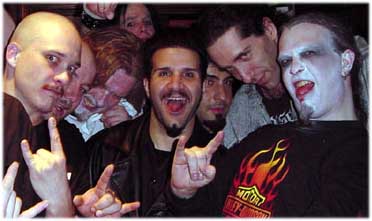
Have you had any ideological conflicts with black metal?
Only with what’s commonly known as NSBM. Call me a purist, but I think bm should not be diluted with social commentary. Not to mention that talking shit about blacks and Jews, etc., puts these people in the same category of thinking as diehard God-fearing Christians like the KKK, for instance. Anybody who has anything in common with those dirtbags should not be playing a genre of music that rejects commonplace religious views.
I understand you are recovering from a childhood in a middle eastern religion (all major Western religions originate in the Middle East). Can you explain what factors have helped and hindered your recovery, and what started you on the path away from Judeo-Christianity?
Heh heh. I was never a religious person, religion has never meant anything to me, I’ve been as atheist as long as I remember, ever since I was old enough to understand the concept of deities. My parents never attempted to coerce me to embrace religion ‘cos they are not that religious themselves. I suppose the fact that I simply never bought into the concept of the existence of a God in the first place started me down the path… But it wasn’t until Sabbath and Venom that it had a focus.
Do you prefer indica or sativa? What is your favorite strain of sinsemilla?
Oh please, I’m not some High Times-style aficianado. I prefer strong, skunky weed to regs but I’ll smoke whatever does the trick! I enjoy smoking in quantity, or should I say always having a fat bag nearby, so I’m not gonna regularly drop $50 for something that’ll last 2 days.
What instruments besides bass do you play?
Guitar, keyboard, and half-assed drums.
You were one of the first bassists to embrace playing with distortion. What engendered this decision?
Discharge, I think. Specifically the “Hear Nothing, See Nothing, Say Nothing” LP. I had a Peaver Mark4 bass head that distorted if you tweaked it and that was it. I never went back.
What other musicians have influenced your technique, and what is your opinion on technique playing?
To be honest I don’t really seek inspiration from anyone nowadays, I was never one of those bassists who practiced constantly or anything. My original inspirations way back when were people like the guys from Cream, Zeppelin, Sabbath, and then later Steve Harris from Maiden. Fancy technical playing isn’t my thing, however, I certainly wouldn’t bash people who do that shit.
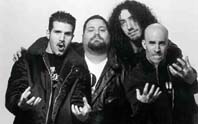
When you played that show at the anti-club in Los Angeles that I saw years ago, with Brutal Truth, your response after the cover of “Lord of This World” was to give a middle finger to the heavens. How do you feel about God? You clearly make the distinction between tolerating religious beliefs of others, and insisting on those freedoms (in lyrics of some bands), but also having a personal stance on religion. How do you feel about everyday religions and how they differ from, say, the beliefs of the church of the creator or the KKK?
I was probably just drunk’n’stoned and being silly. As far as everyday religions go, I pretty much ignore them. If people need that kind of spiritual structure in their lives, that’s on them. I think the extremists are actually more honest in their outright hatred. I don’t need any of that shit.
It seems to me black metal was founded on these beliefs, and on a renaissance retro-fascination with classical and european culture. Do you think there’s room for people with more leftist and tolerant beliefs, like yours, in black metal or do you think it would be like a nazi grindcore band, an anomaly?
I disagree with you. Black metal originally had no political leanings. All this fascination with cultural origins, etc., came about in the 90’s.
This is an interesting line of questioning for me, as the USA is about to go under police state precautions while engaging in a Christian activity to save a Jewish state and ally in the Middle East. How do you feel about this entire chaotic terrorist situation, and do you see it as odd that leftists are encouraging what many would call “fascist” reforms? I’m speaking of the justification of women’s freedom and music and freedom of speech in Afghanistan, and other rhetoric from President Bush in this war against an “axis of evil.” Do you see this situation as positive, negative or of mixed qualities?
Oh, it’s all a big fucking mess. I would agree that the Israelis are no better than all the other scumbags out there, with the notable exception that when they retaliate, they don’t kill innocents in marketplaces. It’s very hard to say what’s right or wrong in that part of the world, some people see the USA as imperialistic meddlers, others see the Middle East as a huge shitpit full of psychotic fundamentalists. Me? I say that not all Muslims are terrorists, but the reverse DOES seem to apply…
If you could play in a band with one other metal musician of note, who would it be and why?
It would be interesting to jam with Trey Azagthoth, he seems to be a very focused, intense musician. I already jam with Reifert!
What the Gospels make instinctive is precisely the reverse of all heroic struggle, of all taste for conflict: the very incapacity for resistance is here converted into something moral: (“resist not evil !”–the most profound sentence in the Gospels, perhaps the true key to them), to wit, the blessedness of peace, of gentleness, the inability to be an enemy. What is the meaning of “glad tidings”?–The true life, the life eternal has been found–it is not merely promised, it is here, it is in you; it is the life that lies in love free from all retreats and exclusions, from all keeping of distances. Every one is the child of God–Jesus claims nothing for himself alone–as the child of God each man is the equal of every other man. . . .Imagine making Jesus a hero!
– F.W. Nietzsche, The Antichrist
No Comments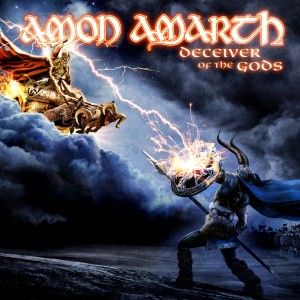 Fans of Amon Amarth will find their latest offering Deceiver of the Gods to be a solid continuation of the band’s heavy and bloody recapitulation of Norse mythology, albeit a little less heavy and a little less bloody.
Fans of Amon Amarth will find their latest offering Deceiver of the Gods to be a solid continuation of the band’s heavy and bloody recapitulation of Norse mythology, albeit a little less heavy and a little less bloody. 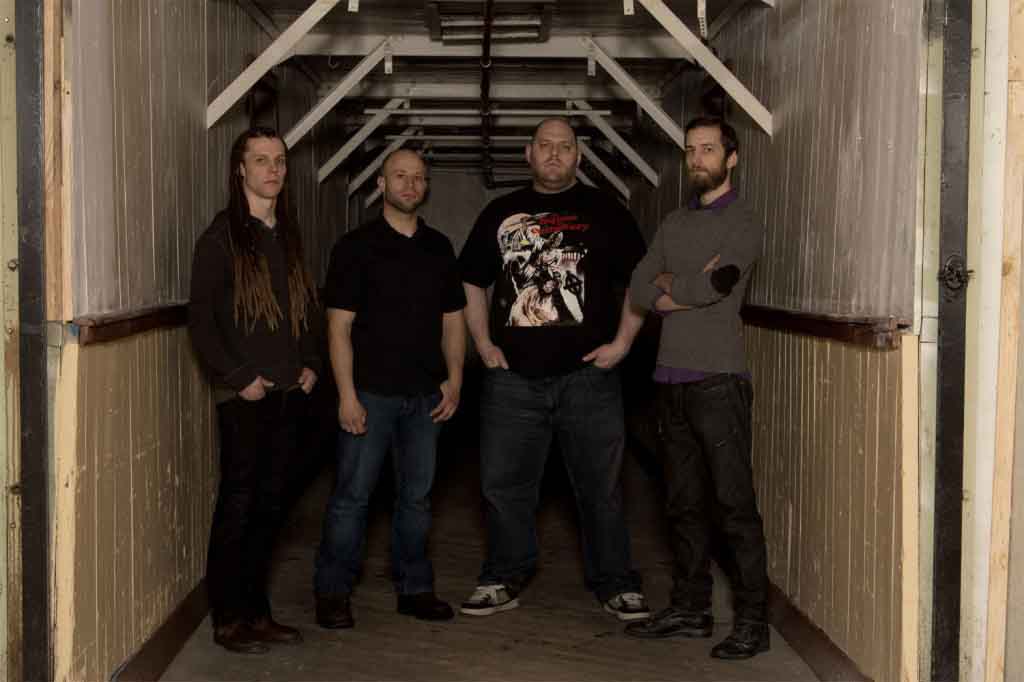
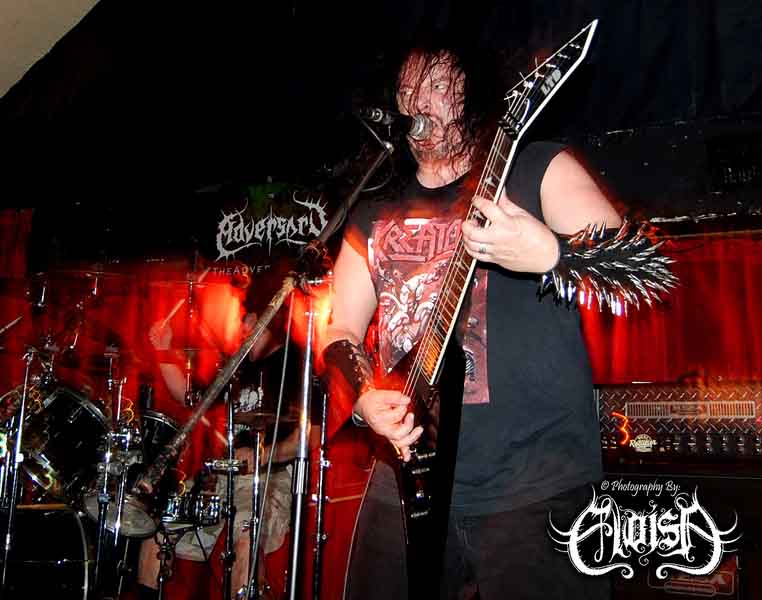 Tom Stevens has been providing technical extreme metal since the 80s. Known as a virtuoso on guitar and owning the distro/label Nokturnel Eclipse, he’s been a supporter of the old school since it began. Though Nokturnel has gone through numerous line-up changes, Stevens has defied odds and kept the flame burning with an indomitable urge to shred.
Tom Stevens has been providing technical extreme metal since the 80s. Known as a virtuoso on guitar and owning the distro/label Nokturnel Eclipse, he’s been a supporter of the old school since it began. Though Nokturnel has gone through numerous line-up changes, Stevens has defied odds and kept the flame burning with an indomitable urge to shred.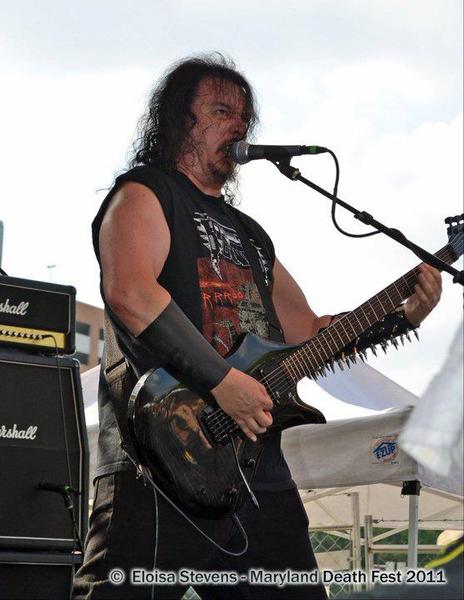 I haven’t heard much on Nokturnel since your last recording ‘Ancestral Calling’. What have you been up to?
I haven’t heard much on Nokturnel since your last recording ‘Ancestral Calling’. What have you been up to?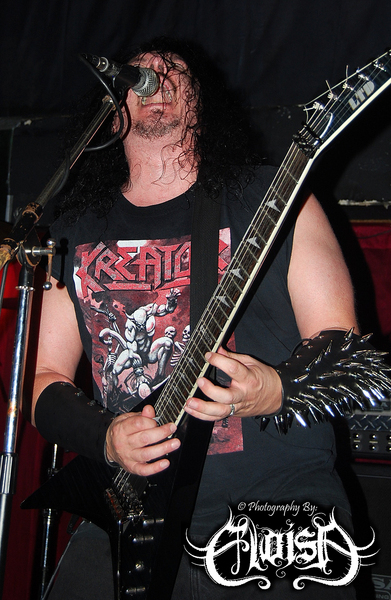 You played with Incantation for a while. What was it like touring with them? Any highlights that you’d like to share?
You played with Incantation for a while. What was it like touring with them? Any highlights that you’d like to share?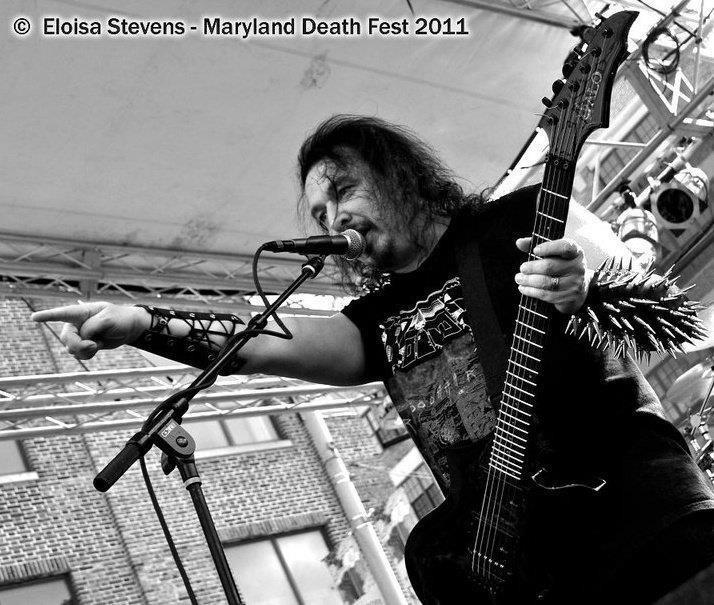 Please detail your contributions to Ripping Corpse. Are you still friends with Erik Rutan?
Please detail your contributions to Ripping Corpse. Are you still friends with Erik Rutan?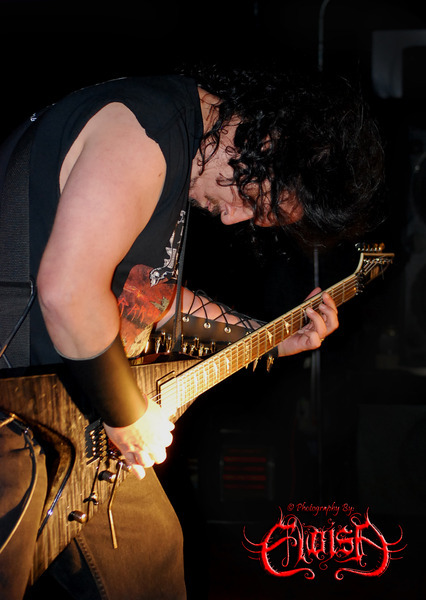 How long have you played guitar? You’re quite an amazing musician. What type of equipment, guitars, strings, etc do you use? What type of equipment would you recommend to new guitarists that are just starting out?
How long have you played guitar? You’re quite an amazing musician. What type of equipment, guitars, strings, etc do you use? What type of equipment would you recommend to new guitarists that are just starting out?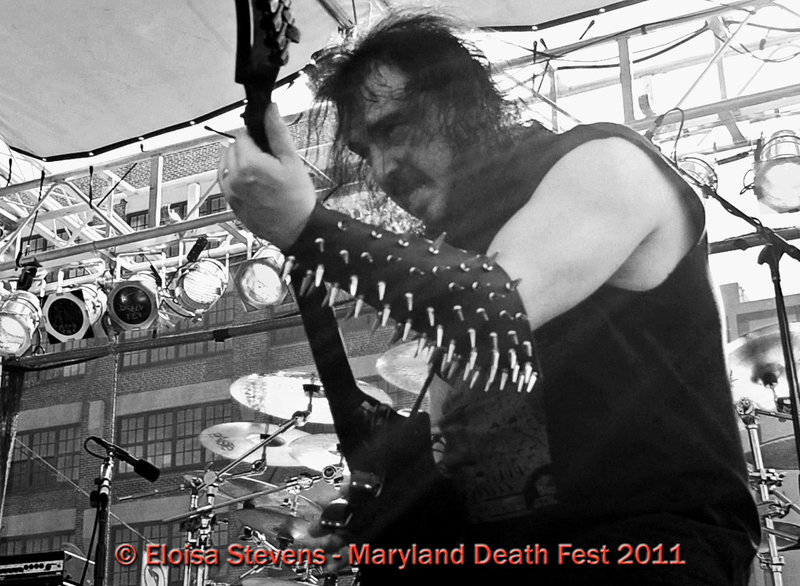 How well was the single “Ancestral Calling” received? What inspired you to write it? The riffs don’t seem to differentiate much, but the technical ability is amazing. How did you approach this song? What was your mindset? How will Nokturnel top this song in the future?
How well was the single “Ancestral Calling” received? What inspired you to write it? The riffs don’t seem to differentiate much, but the technical ability is amazing. How did you approach this song? What was your mindset? How will Nokturnel top this song in the future? In the mainstream press, black metal has a reputation for being solely misanthropic, heavily distorted anthems of aggression and despair that are defined by their primitive minimalism.
In the mainstream press, black metal has a reputation for being solely misanthropic, heavily distorted anthems of aggression and despair that are defined by their primitive minimalism. 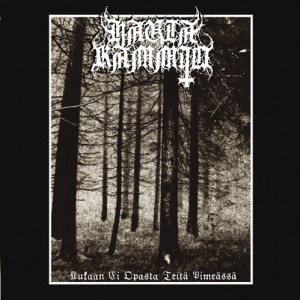 During the early days of black metal, it was acknowledged that punk had been a major musical influence on the genre. In particular,
During the early days of black metal, it was acknowledged that punk had been a major musical influence on the genre. In particular, 
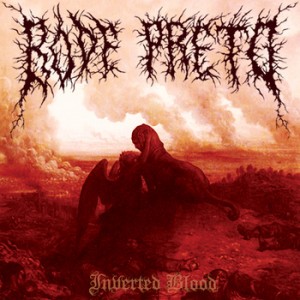 It’s not often that a new band appears that warrants much attention from these old, somewhat jaded eyes. Indeed, there are still good releases that pop up from newer bands — even releases that are good enough in my opinion to support by buying them. In today’s age of over-saturation it’s really difficult to wade through the muck in an effort to find that diamond, if one even had the luxury of time to want to.
It’s not often that a new band appears that warrants much attention from these old, somewhat jaded eyes. Indeed, there are still good releases that pop up from newer bands — even releases that are good enough in my opinion to support by buying them. In today’s age of over-saturation it’s really difficult to wade through the muck in an effort to find that diamond, if one even had the luxury of time to want to.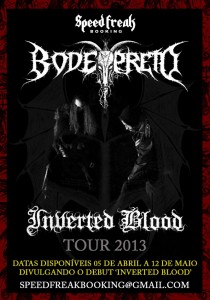
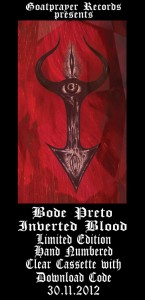 Listen to this release and think about how Adelson was originally approached as a session drummer…Having listened to the skeletal ideas, Adelson was apt to project his unique mind’s eye to the arrangements and ultimately became that new member. A quest to create led him to travel thousands of kilometers from home to spend a week with Josh — revealing a level of conviction to which I don’t think Josh was initially expecting. Josh found his “minute man” in Adelson and the resulting nine-track album is worthy of support by every extreme music fan if you’re worth your salt (or brimstone or whatever).
Listen to this release and think about how Adelson was originally approached as a session drummer…Having listened to the skeletal ideas, Adelson was apt to project his unique mind’s eye to the arrangements and ultimately became that new member. A quest to create led him to travel thousands of kilometers from home to spend a week with Josh — revealing a level of conviction to which I don’t think Josh was initially expecting. Josh found his “minute man” in Adelson and the resulting nine-track album is worthy of support by every extreme music fan if you’re worth your salt (or brimstone or whatever).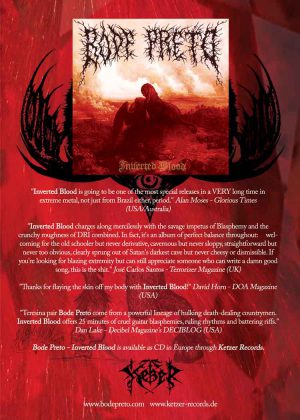
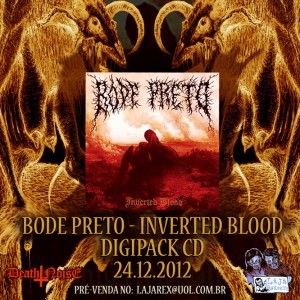
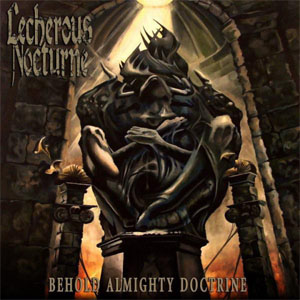
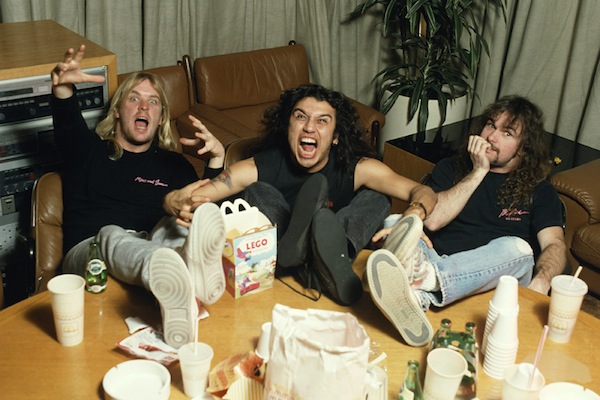
 Let’s do a quick overview of my history in metal. Formed Anthrax, got tossed ‘cos Neil Turbin was a prick. Formed N.A. (’84). Played faster, more hardcore-tinged thrash than Anthrax. So far, no trend-jumping, lol. Was invited to do S.O.D., accepted.
Let’s do a quick overview of my history in metal. Formed Anthrax, got tossed ‘cos Neil Turbin was a prick. Formed N.A. (’84). Played faster, more hardcore-tinged thrash than Anthrax. So far, no trend-jumping, lol. Was invited to do S.O.D., accepted. And for kicks: who came up with Mr Softee theme? I’ve driven away neighbors with that one. ICE CREAM!
And for kicks: who came up with Mr Softee theme? I’ve driven away neighbors with that one. ICE CREAM! Grindcore is by nature an ideological genre, but once you’re in the general area of protest music style lyrics, most of which are what we could call “leftist” or “anarchist,” you’re part of the club. It seems to me that to many musicians, lyrics are mostly irrelevant. How does this fit into your worldview?
Grindcore is by nature an ideological genre, but once you’re in the general area of protest music style lyrics, most of which are what we could call “leftist” or “anarchist,” you’re part of the club. It seems to me that to many musicians, lyrics are mostly irrelevant. How does this fit into your worldview?


